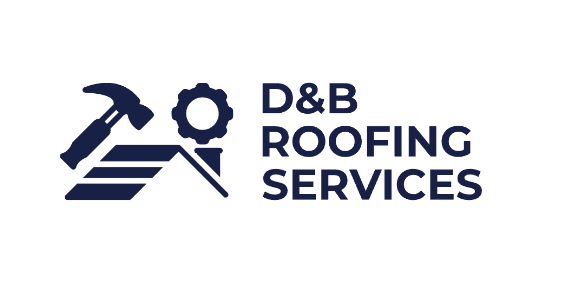Top 5 Roof Repairs Every Homeowner Should Know About
Your roof is your home’s first line of defense against the elements, yet many homeowners neglect roof maintenance until problems arise. Knowing the most common roof repairs and how to address them can save you thousands of dollars in costly replacements.
In this guide, we’ll cover the top five roof repairs every homeowner should know about, from fixing leaks to replacing damaged shingles. Whether you plan to tackle minor repairs yourself or hire a professional, understanding these essential fixes can help protect your home from serious structural damage.
1. Repairing Common Roof Leaks
One of the most frequent issues homeowners face is roof leaks. Leaks can stem from multiple sources, including cracked flashing, damaged shingles, or improperly sealed vents. If left unaddressed, even a small leak can lead to water damage, mold growth, and structural issues.
Signs of a Roof Leak:
• Water stains on ceilings or walls
• Dripping water in the attic after rain
• Mold or mildew growth
• Missing or curling shingles
How to Fix a Roof Leak:
• Identify the leak’s source by checking the attic with a flashlight after heavy rain.
• Replace damaged or missing shingles.
• Apply roofing sealant around vents, chimneys, and flashing.
• Install a waterproof membrane under the shingles in problem areas.
If you’re dealing with extensive water damage, it’s best to hire a professional roofer to prevent further issues.
2. Fixing Missing or Damaged Shingles
Shingles are designed to withstand harsh weather, but over time, they can crack, curl, or fall off, leaving your roof vulnerable to water damage.
Causes of Shingle Damage:
• High winds or storms
• Hail damage
• UV exposure causing deterioration
• Poor installation or aging materials
How to Replace Missing Shingles:
1. Carefully lift the surrounding shingles and remove the damaged one.
2. Slide a new shingle into place and secure it with roofing nails.
3. Apply roofing cement to seal the edges and prevent lifting.
Regular roof inspections can help you spot early signs of wear and tear, preventing more extensive damage.
3. Repairing Flashing Around Chimneys and Vents
Flashing is the thin metal material installed around chimneys, vents, and skylights to prevent water from seeping in. Over time, flashing can become loose, rusted, or cracked, leading to leaks.
Signs of Damaged Flashing:
• Water stains near the chimney or vents
• Visible gaps between flashing and roofing material
• Rust or corrosion on metal flashing
How to Fix Roof Flashing:
• Remove the old flashing using a pry bar.
• Clean the area and apply roofing sealant.
• Install new flashing and secure it with nails.
• Seal edges with additional roofing cement to ensure waterproofing.
If you’re unsure about repairing flashing, consider hiring a roofing contractor to ensure a secure installation.
4. Repairing Sagging Roof Sections
A sagging roof is a major structural concern that requires immediate attention. This issue often occurs due to water damage, poor attic ventilation, or weakened roof supports.
Causes of Roof Sagging:
• Water damage weakening the decking
• Heavy snow or ice accumulation adding excess weight
• Poorly designed roofing structures
• Aging materials that can no longer support the roof’s weight
How to Fix a Sagging Roof:
• Reinforce the roof joists and rafters with additional support.
• Replace damaged or rotting roof decking.
• Improve attic ventilation to prevent moisture buildup.
• If the sagging is severe, consult a roofing professional for structural reinforcement.
Ignoring a sagging roof can lead to roof collapse, costly structural damage, and safety hazards.
5. Preventing and Fixing Roof Vent Issues
Roof vents are essential for proper attic ventilation, preventing heat and moisture buildup. When vents become blocked or damaged, it can lead to higher energy bills, mold growth, and premature roof deterioration.
Common Roof Vent Problems:
• Blocked or clogged vents reducing airflow
• Cracked vent covers allowing moisture to enter
• Improperly sealed vents causing leaks
How to Maintain Roof Vents:
• Clear debris, leaves, and nests from vent openings.
• Replace cracked or broken vent covers.
• Apply roofing sealant around vent bases to prevent leaks.
• Check attic insulation to ensure proper airflow.
Keeping your roof vents in good condition improves overall roof health and prevents costly repairs down the road.
When to Call a Professional Roofer
While minor roof repairs can be handled with DIY techniques, some situations require professional expertise.
Hire a Roofing Contractor If:
• You notice extensive water damage or mold growth.
• Your roof has multiple missing or damaged shingles.
• There is significant sagging or structural issues.
• Your roof is over 15-20 years old and needs a full inspection.
A professional roof inspection can identify hidden problems and prevent costly roof replacements in the future.
Final Thoughts
Your roof is a vital part of your home, and regular maintenance is key to avoiding expensive repairs. By identifying common roof issues early, you can extend the lifespan of your roof and protect your home from water damage, energy loss, and structural problems.
Quick Recap: The 5 Most Common Roof Repairs
✅ Fixing roof leaks to prevent water damage
✅ Replacing missing or damaged shingles
✅ Repairing flashing around chimneys and vents
✅ Addressing sagging roof sections before they worsen
✅ Maintaining roof vents for proper ventilation
By staying proactive with roof maintenance and timely repairs, you can increase your home’s value and ensure long-term protection.
